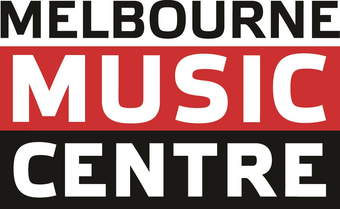Music has the power to move the soul and inspire awe, but for many musicians and performers, it can also evoke a different kind of emotion—anxiety. Stage fright and performance anxiety are common challenges faced by artists of all levels. The good news is that there are effective techniques to manage and overcome these anxieties. In this post, we'll explore strategies that can help musicians and performers find confidence and comfort on stage.
Understanding Performance Anxiety
Performance anxiety, often referred to as stage fright, is a natural response to the pressure of performing in front of an audience. It can manifest in physical symptoms like sweaty palms, a racing heart, trembling hands, and mental symptoms such as self-doubt and fear of failure. Here's how musicians can conquer these anxieties:
1. Preparation is Key: The more you practice and prepare, the more confident you'll feel. Rehearse your music thoroughly, know your cues, and be well-acquainted with your instrument or vocals.
2. Visualization: Mental rehearsal can be just as important as physical rehearsal. Visualize yourself performing flawlessly on stage, focusing on the positive emotions and reactions of the audience.
3. Breathing and Relaxation Techniques: Deep breathing exercises and progressive muscle relaxation can help calm nerves before taking the stage. Practice these techniques regularly to build your relaxation skills.
4. Positive Self-Talk: Replace negative self-talk with positive affirmations. Remind yourself of your skills, the hard work you've put in, and your ability to succeed.
5. Connect with Your Audience: Before performing, take a moment to connect with your audience. Remember that they are there to enjoy and appreciate your music. Channel nervous energy into a genuine desire to share your art.
6. Focus on the Music: Shift your focus away from self-criticism and concentrate on the music itself. Lose yourself in the melodies, harmonies, and rhythms. Allow the music to carry you.
7. Embrace Mistakes: Accept that mistakes are a part of live performances. Even the most seasoned musicians make errors. It's how you recover and continue that matters most.
8. Gradual Exposure: If stage fright is severe, consider gradually exposing yourself to performance situations. Start with small, supportive audiences and work your way up to larger venues.
9. Seek Professional Help: For persistent anxiety that interferes with your ability to perform, consider consulting a therapist or counselor who specializes in performance anxiety.
10. Perform Regularly: The more you perform in public, the more comfortable you'll become. Regular gigs and open mic nights can help desensitize you to performance anxiety.
Learning from the Greats
Many renowned musicians have faced performance anxiety and found their own ways to conquer it:
-
Adele: The Grammy-winning artist has spoken openly about her pre-show nerves and how she channels that energy into her performances.
-
Yo-Yo Ma: The world-renowned cellist practices mindfulness and deep breathing techniques to manage anxiety before performing.
-
John Lennon: The iconic Beatles member struggled with stage fright throughout his career but often found solace in humor and camaraderie with his bandmates.
Conclusion: A Symphony of Confidence
Performance anxiety may be a part of a musician's journey, but it doesn't have to define it. By implementing these strategies and learning from the experiences of others, musicians and performers can harness their anxiety, transform it into excitement, and step onto the stage with confidence and grace. After all, music is not just about the notes; it's about the connection and emotions it evokes, both in the audience and the performer.
So, let your music soar, your talent shine, and your confidence grow, for the stage is your canvas, and your performance is a masterpiece in the making.

